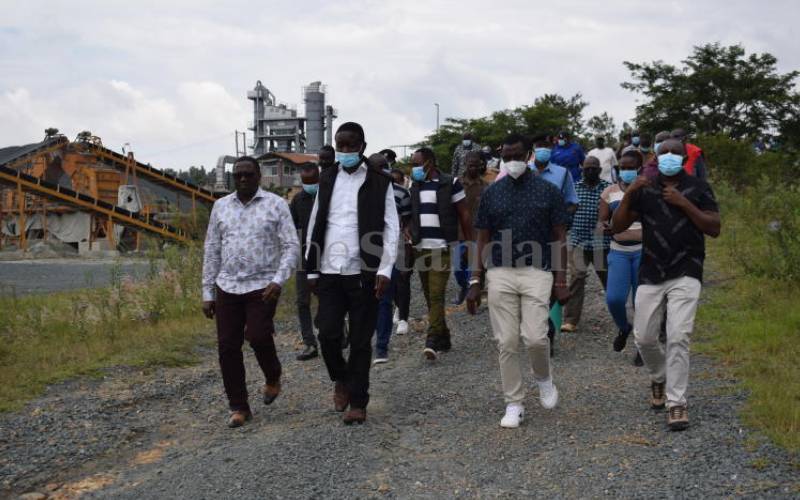×
The Standard e-Paper
Kenya’s Boldest Voice

The committee, led by interim Chairman Paul Nzengu, ordered the company leadership to appear before it in Nairobi. [James Omoro, Standard]
A Chinese company has said it has been legally undertaking mining and blasting of stones in Kasipul constituency, Homa Bay County.